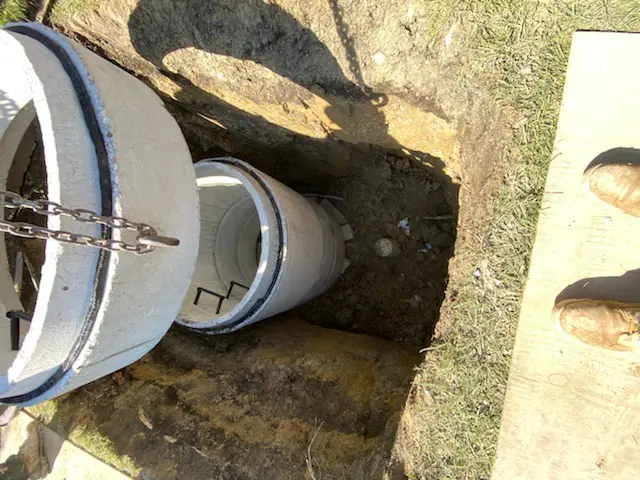Menu
Call This Thursday to Get $50 Off
Do You Need a Plumber in Dallas, TX? Call us Now to Get $50 OFF
4.8 / 5 Ratings based on 1384 reviews Great Plumbers, Great Reviews
Call This Thursday to Get $50 Off
The sewer line is an integral part of any plumbing system, whether at home, a commercial site, or industrial facility. However, these pipes are often buried underground; they're out of sight and out of mind for the average property owner.

While responsible property owners are vigilant and will schedule annual plumbing inspections, proactive ones will go a step further. Two effective tools for maintaining sewer lines are sewer clean check valves and sewer flood control systems.
If you’re scratching your head trying to figure out the difference between the two or wondering which one might be right for your property, this guide brought to you by Mr. Rooter Plumbing is for you.
A sewer clean check valve is a one-way valve installed in the sewer line. Its primary function is simple: to prevent backflow from the municipal sewer system into your property’s plumbing. Think of it as a one-way door for wastewater; it lets waste and water flow out of your property but slams shut if anything tries to come back in.
These valves require minimal upkeep beyond occasional inspections to ensure they’re functioning correctly. Plus, they are discreet and don’t take up much space in your plumbing system.
While excellent for backflow prevention, however, these valves don’t address broader flooding concerns caused by overwhelmed sewer systems or ground-level water intrusion. If debris builds up around the valve, it can compromise its performance – so periodic checks are essential.
A sewer flood control system is a more comprehensive solution designed to prevent sewer backups and flooding. These systems typically include larger mechanical components (such as sump pumps, holding tanks, and advanced valves) to manage excess water effectively.
While sewer clean check valves are a one-hit-wonder, so to speak, sewer flood control systems don’t just stop backflow; they also help manage stormwater and other sources of flooding. These systems can be tailored to the unique needs of a property – whether residential, commercial, or industrial.
The drawbacks are that sewer flood control systems are more complex and require a bigger investment upfront; the installation process can involve larger equipment, which may take up space on your property or in your basement; and they require consistent maintenance and inspections to ensure everything is working properly.
The decision between a sewer clean check valve and a sewer flood control system depends largely on your property’s needs, location, and risk factors.
Whether you’re leaning toward a sewer clean check valve or a flood control system, professional installation is critical. The trained and seasoned plumbers at Mr. Rooter Plumbing are experienced with everything from these installations to even a trenchless sewer line replacement.
Feel free to call Mr. Rooter Plumbing at any time of the day and get in touch with a knowledgeable member of our team. We are proud to also offer emergency sewer repair services in Cedar Hill, TX.
One moment you’re enjoying a hot shower or washing dishes without a care in the…
Read More+A massive stream of water in the shower or kitchen faucet may seem like a…
Read More+The DIY spirit in the U.S. is more alive than ever, with…
Read More+The drainage system in your home is vital for maintaining convenience and the well-being of…
Read More+